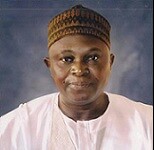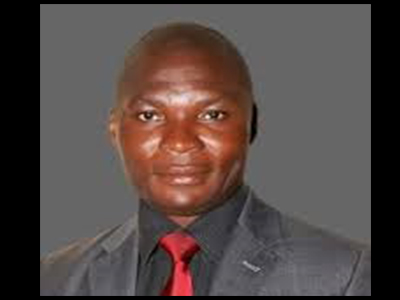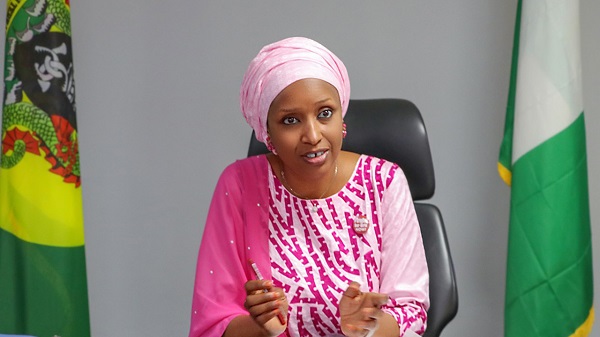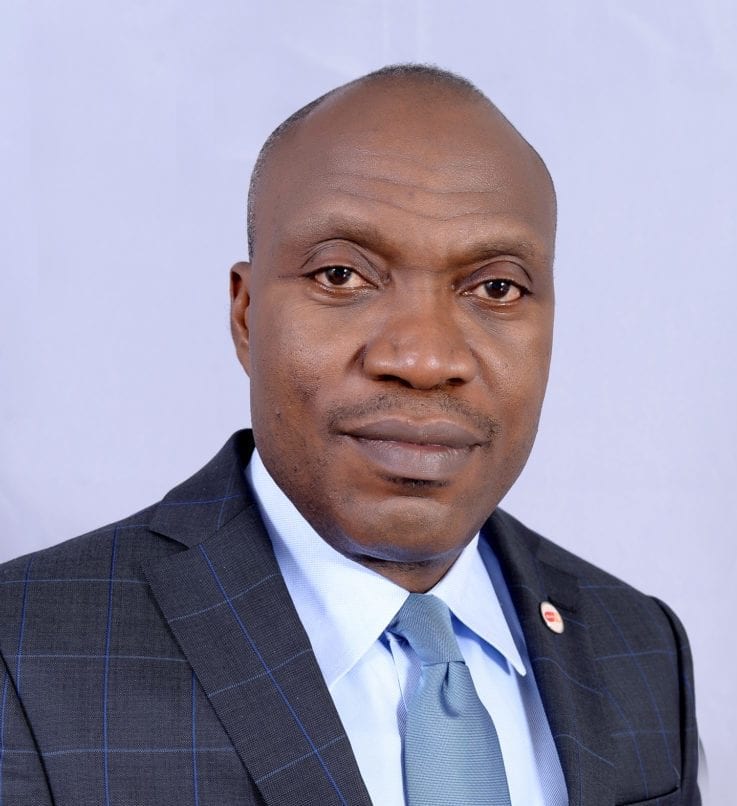Railway Will Become Nigeria’s Transportation Hub- Mahmood

By Oyeniyi Iwakun
Mr. Yakub Mahmood is the Director, Public Relations of the Nigeria Railway Corporation (NRC). In this exclusive chat with MMS Plus, he appraised the activities of NRC in 2017, analyzed the extent of work done on the ongoing rail line construction; he also spoke on NRC projections for 2018 and their efforts at decongesting the Apapa port and explored the benefits accruable to railway transportation model.
Excerpts:
How have your activities contributed to the economic growth and development of Nigeria?
One of our major contributions towards the economic development of this country is entrenched in our mandate of the movement of goods and passengers by train from Lagos, Port Harcourt, Kano to wherever railway line links in Nigeria. That is our mandate and we have been able to execute it within the limited resources available.
Our major constraints now are the coaches, wagons and the locomotives. We have more than enough passengers and freight to carry by rail but within our limited capacity as at now, we are using our own trend on daily basis to decongest the ports by moving containers from Apapa port to the Ebute Metta Junction (EBJ) station. If you go to the EBJ station now, you will see a lot of containers waiting for their owners to come and pick them. Everyday we move about four trains of 20 to 25 wagons of containers loaded from Apapa to our station here in EBJ. This is a new initiative because of the congestion as a result of the ongoing Apapa port road rehabilitation. Apapa to EBJ station is over seven kilometers, having realized that we have railway lines up to Apapa; we thought within ourselves how to contribute to decongesting the gridlock, hence the decision to bring the containers here so that the owners can come and take them from here.
Then for the passengers’ trains, we have Kano to Lagos, weekly; Lagos to Kano weekly and Lagos to Ilorin, weekly; Offa to Kano, weekly; Kano to Offa, weekly; Aba to Port Harcourt, Daily; Minna to Kaduna thrice a week, Mondays, Thursdays and Sundays and others. These are all functional trains.
Then, of recent, around the 5th of January this year, due to high demand by passengers for additional trains plying Abuja-Kaduna standard gauge, the president, His Excellency, Muhammadu Buhari commissioned another set of trains to service the Abuja-Kaduna. So, in place of the initial four trains, we now have eight trains plying Abuja- Kaduna on daily basis from Monday to Friday except on Sundays that we run four trains. It means the demand at the Abuja-Kaduna had been addressed.
As the population increases, so the demand for traveling increases. It now depends on the choice of the esteemed customers to decide the mode by which they will travel. Some may decide to go by air, the marine is there and some by road while others by rail. People prefer to travel by rail because of its comfort and in mega cities where we have a lot of traffic congestions; the train is always at major advantage because it can never be held in traffic. As soon as the train is approaching the level crossing, we have a level crossing keeper that will give signals to the road users that the train is approaching so that they can stop and allow the train to pass. You will now realize that it is even faster in the mega cities to move by train than road because of gridlock.
If you look at Lagos here, we have trains that service Lagos and Ogun states excluding Sundays, either from Apapa to Ijokku, to Kajola and to Iddo, Ijoku and Kajola. We have about six trains, three returns on daily basis and it is relatively cheap. So you will find out that every day, many people come from Ijoko to Lagos Island and Mainland so that they can work and earn a living. We also repeat the same thing in the evening by taking them back home after the hard day work. These trains are in two categories: We have the executive or corporate train which is slightly more expensive in Lagos because it is air conditioned, and very much conducive. So when you look at the performance of railway generally, you will realize that it is above the expectation of the people and very soon, probably around July or August 2018, we are expecting most likely the president to commission from Itakpe in Kogi state through Ajaokuta, up to Warri in Delta state it for use. It then means that the central part of the country will now start enjoying the standard gauge railway line. This is where the standard gauge was abandoned for over twenty years but it’s currently under rehabilitation. In fact the coaches to be used on that standard gauge are already in the country they have been conveyed by road to Warri.
Again, don’t forget that the construct of Lagos to Ibadan railway tracks is on and all things being equal, before the end this year, by August, the Ibadan-Lagos train will be commissioned. Here, you may not see how far work has gone but one of these days when you follow the entourage of the Transport Minister to inspect these projects, you will realize what I am saying. When you get to Ijoko, Itori, Papalanto and other places, you will see the extent of work being done. To the best of my knowledge, during our last visit with the minister, the art work has gotten to Abeokuta and all those that are affected, those whose land or buildings fall on the tracks are being settled. Although, we may have some of them still raising eyebrows but to the best of my knowledge, they have been compensated. That’s why it is easy for us to progress with the project. So we are optimistic that the Ibadan-Lagos railway will soon be put into use because the federal government have paid the contact fund, what is now left is the counterpart fund from the Chinese who are also the contractors, China Civil Engineering Company (CCEC).
We observed that the shanties built around the railway lines in Lagos have been demolished last year to pave way for standard gauge. Has work really started?
Yes! I can recall sometimes two years ago, we issued them notice to quit. Interestingly, most of the residents know that where they were occupying isn’t theirs. That’s why they built shanties, something temporary that they can easily remove at once and they did that when we instructed them to do so. So I can tell you that from Apapa to EBJ station there is no much encroachment on the railway line except one or two few places. I can recall there is one hotel 20 meters around Ijora, then one other company. If you really observe, the work had reached our gate here but if you go to around Iju, Agege side you will realize that work had reached advanced stage inside Lagos city but the major constraint is that there are some bridges and flyovers like the one in Ijoko that have to be demolished because they are too low and you know that in mega cities like Lagos, it is not easy to just disconnect the road, there must be alternative. Just like when we got to Abeokuta, the survey enters an estate and a lot of houses are going to be affected, so we have to be compassionate. We cannot just say because we have paid compensation, we should forcefully ask people to leave. You have to give people time even though he is going to hire presidential villa or if he or she says he is going to erect another building somewhere. So we have always been compassionate in whatever we do. Even though it is shanties we have to give people time to relocate to another place but that doesn’t mean that railway construction shouldn’t go on. It is for our own benefit. If you even go to our staff quarters here in EBJ we have already marked some buildings for demolition to pave way for the construction of an international railway station. So most of our staff residing within are going to be affected and modalities are being put in place on how they are going to be relocated.
The more we have railway facilities, the more employment opportunities, the more small businesses will strive and the more you are creating more cities because for instance you have a functional train that shuttle between Lagos to Ibadan, some people may relocate to those stations outside because there is a transport system that can bring them to the city and after work they can go back home and rest. So before you know it, most of those stations are going to be created in the hinterland and they will turn into cities. Those towns between Lagos to Abeokuta and Lagos to Ibadan will link up and turn to cities. Just like what is happening between Lagos and Ogun state. Lagos and Ogun state are now fused together. At times when you are in Ogun state you will think you are still in Lagos except those that know the boundary very well tell you.
To me, it is a good development now that government is focusing on the development of railway. Railway is one of the key institutions that stimulate the economy. In the sense that even the grassroots will feel the impact of the railway. One of those things that stimulate the economy is the small and medium scale businesses; they are the sellers you see at designated railway stations. Even if it is a little profit they make from their businesses, the economy would continue to grow. You will not see a lot of beggars because they will be at least contented with what they have. If you go to Papalanto, by the side of the plant yard is now a very big market which wasn’t existent in the past, and youths from those areas are now gainfully employed unlike a year ago when they were roaming about jobless. So, railway development is very important because people must get work and one important thing is that even though we have limited trains or more than a hundred trains, it is still the same staff strength that we are going to use because people must be at the railway stations. It is the same work.
Railway is a specialized transportation system. You cannot say because you have a car, you can just drive a locomotive. No! You have to be trained on how to drive a locomotive. So there are lots of benefits that have to do with railway transport system. Like I said earlier, we thank God that the federal government is doing its best to ensure that major cities and state capitals are linked by railway lines. Any phase of construction that is going to take place now is going to be the standard gauge with modern trains although we aren’t going to abandon the narrow gauge, of course we will still manage them.
Last year, the Lagos, Railway District Manager said you were in talks with some major oil marketers to make use of the forty tank wagons purchased in 2012. How far have you gone with that?
I don’t want to delve into that much because my bosses have been in talk with these major oil marketers to come and use those forty tank wagons. As at when the trucks were newly purchased, talks were in advanced stage to see to the effective use of the wagons for the movement of petroleum products from the ports to other part of the country especially the North. The Nigeria Railway Corporation (NRC) also use the wagons to transport her own products to other districts all over the country. We buy them in bulk in here in Lagos and use it to distribute to other districts for their usage. If the oil marketers want to use it, they can come forward so that we continue from where we stopped our talks. We have been using it, so it is very much available. There are lots of advantages accruable to it: it is going to be cheaper, faster, and the volume will increase. Let’s assume we move ten wagons, you can imagine how many tankers would be required to convey that quantity to those places. And when we do that, we will not be overstretching the road. There will be less pressure on the road. All over the world, heavy duty commodities are now transported by rail. It then means we will only be having the light duty vehicles plying the roads and even if we will be having heavy duty vehicles on the roads, they will not be much. They should come forward and give us a trial and see if we will disappoint them. We have been exchanging correspondences but they need to come to us and let’s do business together.
I have always said it, just like when you go to the market; you have a choice because you are looking for value for your money. And don’t forget that if you even tell some people to come and travel by road for free they will not because there are alternatives and they also have their reasons for not coming to patronize you. Some prefer air, water and some will not even travel by air or road except rail. There are some passengers who will wait or reschedule their journey if we say our trains would not travel for the next one month so that they can travel by train. So we are living in a competitive world where there is choice but we have been telling people to come, earn our confidence, and patronize our services and when we do otherwise you can now have reasons to complain or say I will not go there again.
However, we have customers that are there on queue but because of capacities, we cannot satisfy them at the moment. If we can have a train on hourly basis, we have customers. In fact if we have a train just like in the past from Lagos to Kano every day, we will still have customers. A lot of people are traveling on daily basis.
What modalities have you put in place to improve your workers’ welfare?
We have a very brilliant welfare package for our workers. All salaries and other entitlements are paid promptly and up till this moment we owe none. The salary for last month has even been paid. We are even paying them productivity allowance and one month bonus which is the 13th month. Where is that been done in Nigeria today? That means there is an industrial relationship between the workers and the management, our productivity margin is getting higher and to appreciate them, we just say take the 13th month. The workers are there, you can confirm from any of them that I said they were paid the 13th month. What we are trying to do now is to improve their standard of services and review their allowances and see where we can jerk it up in order to boost their morale. It’s just an incentive.
In terms of accommodation, most of our workers are residing within. Most of our engineers, technical workers and others reside within and for those staying outside, we also see to their accommodation because accommodation is key. We have guest houses for our guests all over the stations. We also have recreational facilities for junior and senior staff. In terms of security, railway has a police command headed by a police commissioner. You can see how government is concerned about the security of people and their properties. Our members of staff are secured, comfortable and when it comes to salary, we are not owing anyone.
In those days railway used to be the largest employer of labour both directly and indirectly: directly in the sense that those on our pay roll and indirectly those benefiting from economic activities of railway like food sellers, potters and others and we hope that the glory shall return soon. If you go to the Kaduna station, you will see taxies and tricycles trying to convey passengers apart from those that came to visit their friends, relatives and associates. If you go to Idu in Abuja, it is the same thing. There are lots of commercial activities going on there. The Idu station is a bit far from town, so there is an arrangement with the Federal Capital Territory (FCT) authorities where buses are made available to convey passengers to town.
Inside the train, we have catering services where people can buy snacks for their own traveling pleasure. We also have nurses in the train, because we know people may fall sick, so the nurses will take care of them. There is also maximum security. We also have a walk through just like we have in the airports, we photocopy passengers’ identity cards, scan their baggage and if there is any metal or any prohibited item, the alarm would blow and the passenger has to declare it. We don’t compromise security. We have police, Man O’ War and private securities on the train because the safety and security of our passengers are paramount. Railway transport is the only transport means that gives you peace of mind. It’s a safe haven.
Your staff seem to complain about poor salaries, what are you doing to ensure increment in salary like other transport agencies?
Nigerian Ports Authority (NPA), Nigeria Shippers Council (NSC) and others are all part of Ministries, Departments and Agencies (MDAs) under the same transport ministry but they have a stronger financial base and their revenue is being paid in foreign currencies. When you have enough revenue to pay your staff and still remit some into the coffers of the federal government, nothing stops you from saying in order to boost their morale, you are proposing that their salaries should be increased and when government realizes that you have the resources, they will grant approval to such request.
In NRC we have a subsidiary, Railway Property Development Company (RPDC), but their salary scale is entirely different from our own because they generate more revenue than their salaries. They then proposed for salary increment which they got because they have the revenue. So, tomorrow, if we have functional passengers’ and freight trains operating all over the country and generating revenues running into billions annually, nothing stops the union and management to come together and forward a proposal to the federal government that we can pay our staff and we can increase it to certain amount and they will say go ahead and implement it.
We are trying as much as possible to make our staff comfortable, that is why we are paying their salaries and other entitlements as and when due.
Copyright MMS Plus.
All rights reserved. This material, and other digital content on this website, may not be reproduced, published, broadcast, rewritten or redistributed in whole or in part without prior express written permission from KINGS COMMUNICATIONS LIMITED.







